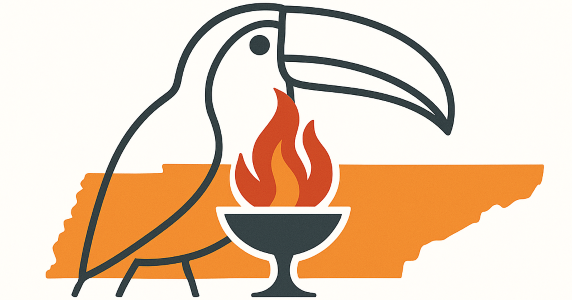
We Cannot Erase Our History
Earlier this week, the current head of our administration signed a proclamation that declares Indigenous Peoples’ Day (celebrated this past Monday) to again use the former name of Columbus Day. The proclamation glorifies “the original American hero, a giant of Western civilization, and one of the most gallant and visionary men to ever walk the face of the earth.”
That’s quite a different view than that of a man reporting to Spanish investors, who brought disease, enslavement, and deportation to those who originally occupied this land we call home. I recently was able to dive deeply into this conundrum - these different statements about history.
I am currently in a cohort of ministers who are taking a Ministerial Transitions course. It is designed for any minister serving in roles that follow someone who had a position for a lengthy period of time - and we meet bi-weekly throughout the year on Zoom, with one in-person gathering.
Last week, I was privileged to join my cohort of ministers in person in Montgomery, AL.
There, we continued the work of understanding what came before us and how that informs how we move forward. Each day, we met to prepare for a museum experience that helped us to understand our collective past as Americans, and specifically as American UUs. And each evening, we worked to unwind what we had learned, or unlearned - as was often the case.
I’ve lived in the South for most of my childhood and adult life. Attending high school here in Nashville, my questions about racism were generally met with “that was handled with Civil Rights, please don’t bring it up,” and I was explicitly taught to never mention anything that would bring attention to someone’s race. I learned to take great pains to describe someone who looked different than me as “the guy with curly hair, the brown shirt, and black shoes over there,” instead of mentioning that he was Black (or Brown, or any other shade that wasn’t white-ish). This practice, which I believe had good intentions, inadvertently helped me to ensure the practice of erasure of culture and minimization of difference, and it left me confused. The problem with this approach is that it erases culture. And also, the difference is not bad.
Social Studies followed the same trajectory annually - at first, we started with Christopher Columbus and moved forward, until we gradually shifted to beginning with Leif Erikson (who “discovered” this land around 500 years before Columbus), and then we moved forward in time. The weird thing was, with this timeline approach, we always only got to the Civil War, and then only had about 2 weeks left in school to cover the war and everything from the mid-1800s to the present day. I cannot say if this practice was intentional or not. Needless to say, my understanding of modern history had some gaps.
When I asked about the Kennedy assassinations with the then-taboo subject of race, I was told vaguely that JFK and RFK were assassinated because of hate. Which, while true, did not tell the whole story. It was not until I was in my 20s that I learned that they were assassinated because of their support of the Civil Rights Movement.
In Montgomery last week, we went to the Freedom Rides Museum and learned about the people who sacrificed their own physical safety to integrate public transportation. It is housed in the old Greyhound bus station, where segregated transportation was enforced.
We went to the 3 Equal Justice Initiative sites, which were, hands down, the best museum, sculpture, and memorial experiences I have ever had. I came away feeling strongly that each of our elected officials - at every level, but most especially at the national level - would benefit from a required 3-day infusion of history - ingesting the information there before being sworn into office.
I left Montgomery not only feeling more connected to fellow ministers in a transition post, but also with my eyes wide open about the connection between racism and capitalism and power.
If you haven’t yet gotten involved in any way that helps to unite with fellow UUs in the goal of preserving history as it happened, and working toward making our values come to life in our city, state and country - consider signing up to learn at the Tennessee UU Community Action Network at FUUN this Saturday, when UUs from across the state will come together to meet and plan living our values into action. (I understand that the afternoon, especially, is a good space for teenagers as well!)
With love for you and our faith that calls us to action - Rev. Jennifer

